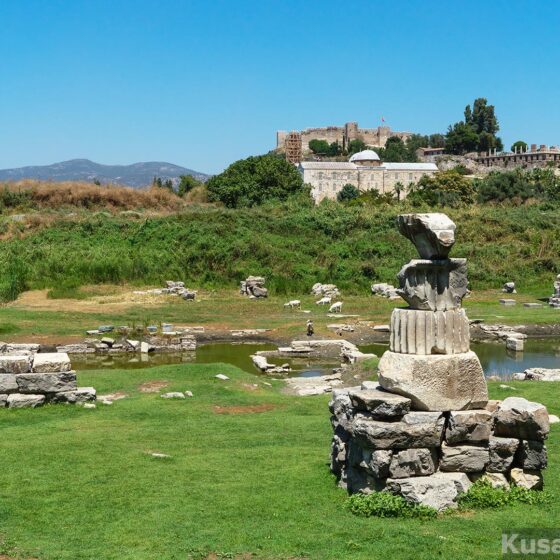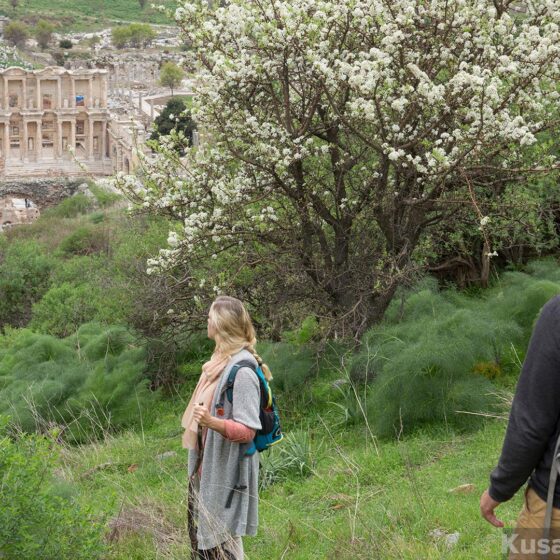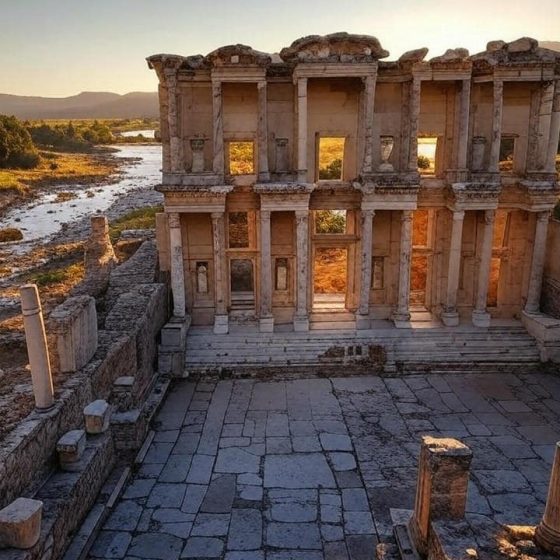Table of Contents Show
Curiosity about Ephesus never wanes, and your inquiries guide our exploration. What exactly is Ephesus? How does it fit into the tapestry of today’s world, and Does Ephesus Still Exist? In this concise exploration, we answer these pressing questions, revealing the essence and ongoing legacy of this ancient marvel.
What is Ephesus?
Ephesus is a window into antiquity, an ancient city etched into the fabric of history. It was once a bustling metropolis, a beacon of culture and commerce in the Classical Mediterranean world. Founded by Greek colonists in the 10th century BC, Ephesus became famous for its grand Temple of Artemis—one of the Seven Wonders of the Ancient World. Over the centuries, it served as a significant urban centre under multiple empires, from the Greeks to the Romans and beyond. Today, it stands as one of the most extensive archaeological sites in existence, offering us a glimpse into the lives of our ancestors and the civilizations that shaped our world.
See also:
- Ephesian Bee: A Journey into Mythology
- Legends and Myths of Ephesus
- Why You Should Visit Ephesus in 2024
What is Modern-Day Ephesus?
Modern-day Ephesus is a testament to preservation and education. While the city itself fell into decline after the Roman Empire, what remains today is a protected site near the town of Selcuk in modern-day Turkey. The ancient streets, agora, and the remains of once-magnificent structures tell the story of a bygone era. The modern experience of Ephesus is that of a living museum, meticulously maintained and carefully researched by historians and archaeologists. It is a place where the past is continually unearthed, revealing new stories and connections to our collective history.
Does Ephesus Still Exist?
Yes! Ephesus still exists, though not as the lived-in city of its glory days. Its ruins provide a tangible connection to our past, standing defiant against the passage of time. The site continues to be an active archaeological zone, where discoveries are regularly made, adding depth to our understanding of ancient cultures. Visitors can walk its historic paths, gaze upon the façades of its libraries and temples, and sit in the amphitheatres where citizens once gathered. Ephesus remains a vital link to our past, inviting visitors from around the globe to walk through history.
As we look at Ephesus in 2024, we see not just a historical site but a bridge between the past and the present, offering invaluable lessons and experiences that resonate well into the future. It is a place where each stone has a story, and every visit enriches our appreciation for the ancient world.



